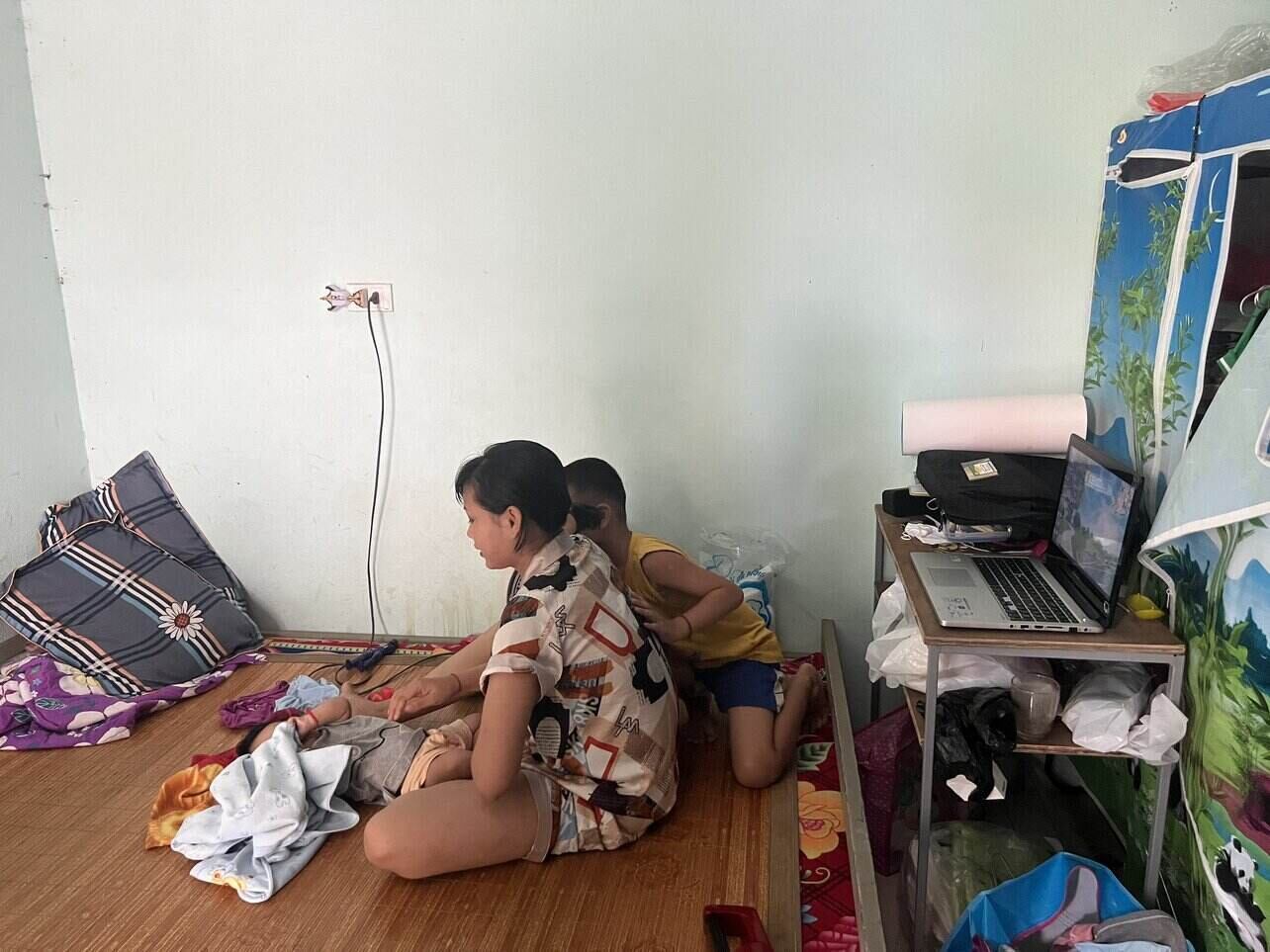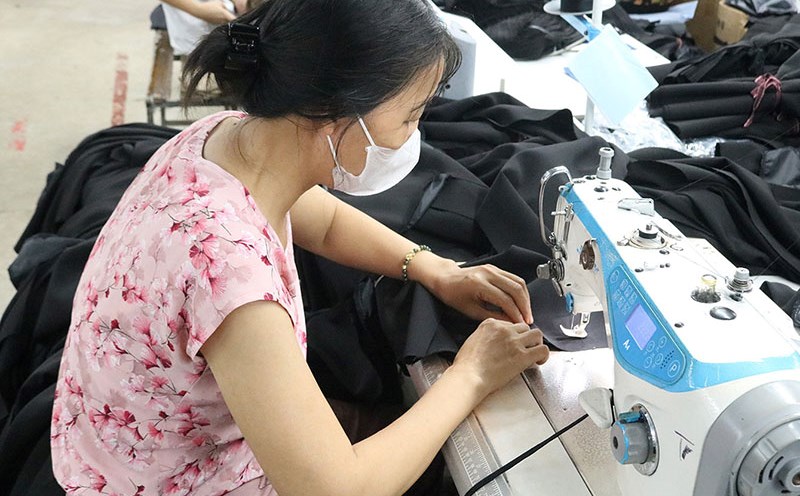This is one of the policies with profound humanitarian significance, contributing to ensuring the right to study and creating better access to quality education for children of workers.
The family of Mr. Tran Van Dinh - a worker renting a room in Kim Chung commune, Dong Anh district, Hanoi is a typical example.
Mr. Dinh and his wife have two children, both of whom are studying at public schools, the oldest child is preparing for grade 6, the youngest child is in grade 3. Each month, the two children spend more than 3 million VND on tuition and boarding meals alone.
Mr. Dinh shared: "I work overtime all month, and my income is only about 10 million VND, not enough to cover all expenses, especially when the rent for the house and electricity and water is also nearly 2 million VND".
Mr. Dinh's wife earns only 7-8 million VND per month, now the company has few jobs, only receives basic salary and other allowances and subsidies.
"When our children are exempted from tuition fees, we can consider giving them additional foreign language or skills, so that they have more opportunities in the future. Therefore, tuition exemption is not simply a financial aid, but a way for the State to accompany workers in building the future for the next generation" - Mr. Dinh expressed.
Not only Mr. Dinh's family, but many other workers are also struggling with education costs.

According to the survey results conducted by the General Confederation in March - April 2025 with nearly 3,000 workers answering for votes in 10 provinces and cities, more than 53.3% of workers said that their salaries only partially meet (over 50%) of their children's education needs.
Thus, for the majority of workers, the cost of education is a financial burden and they have to depend on support sources such as loans, savings or from their families to cover enough.
In particular, 6.9% of workers said their salaries did not meet the demand for children's education.
According to the Vietnam General Confederation of Labor, this is an worrying number, which could lead to their children not having access to quality education, affecting the development ability and career opportunities of future generations.
According to the Resolution on tuition exemption and support for preschool children, primary school students, students of general education programs in educational institutions in the national education system, and students of all levels in public educational institutions will be completely exempted from tuition fees.
For students studying at private and public educational institutions, the State will support tuition fees according to the framework decided by the Provincial People's Council, ensuring that they do not exceed the actual tuition level.
This policy not only contributes to reducing the financial burden, but also opens up more fair opportunities in accessing education for children of workers, a group that is at a disadvantage.
Mr. Dinh believes that tuition exemption is a necessary condition, but above all, it is necessary to improve the quality of teaching and invest in facilities so that the free policy is not only an immediate relief but also an investment for the long term future.











